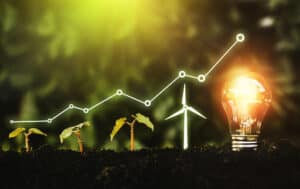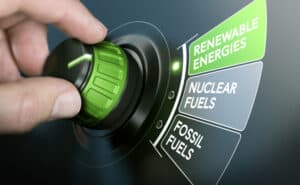The World of Renewable Energy Sources
What are Renewable Energy Credits (RECs)? Renewable Energy Certificates (RECs) are a type of currency that proves you have used renewable energy from the grid. While they are not tangible, RECs are tradeable and offer a number of benefits.
This article will provide some information on RECs. You can use them to offset the cost of energy produced at your place of residence. They are also an excellent way to offset your electric bill.
The Need for Renewable Energy
In the modern world, our insatiable appetite for energy has driven an unprecedented reliance on non-renewable resources such as coal, oil, and natural gas. This incessant consumption has not only led to their rapid depletion but has also resulted in severe environmental consequences, including air and water pollution, greenhouse gas emissions, and climate change. As the global population continues to grow, the strain on these finite resources intensifies, making it crucial to explore alternative and sustainable energy solutions.
Amidst these pressing challenges, renewable energy emerges as a beacon of hope for a cleaner and more sustainable future. Unlike fossil fuels, renewable energy sources, such as solar, wind, hydro, geothermal, and biomass, offer a virtually limitless and naturally replenished supply. Harnessing these abundant resources provides a way to break free from the vicious cycle of depletion and environmental degradation associated with non-renewable energy sources.
What is Renewable Energy?
Renewable energy represents a transformative paradigm shift in the way we harness power to meet our ever-growing energy needs sustainably. It encompasses a diverse array of natural resources that continuously replenish themselves within a human timeframe. The foremost among these sources include solar energy, which captures the sun's rays through photovoltaic cells or solar thermal systems, converting them into electricity or heat.
Wind power harnesses the kinetic energy of wind currents through wind turbines, generating electricity in the process. Hydropower taps into the force of moving water in rivers or dams, converting it into electrical energy. Geothermal energy, on the other hand, exploits the Earth's internal heat from the core to generate power. Additionally, biomass energy utilizes organic matter, such as agricultural waste and wood, as a source of energy through processes like combustion or biochemical conversion.

The Benefits of Renewable Energy
Renewable energy stands as a paramount solution to address multiple pressing challenges in our world today, offering a myriad of advantages that make it a cornerstone of sustainable development. These benefits span across environmental, economic, social, and technological aspects, making renewable energy an indispensable part of our future energy landscape.
Environmental Advantages
One of the most compelling reasons to transition to renewable energy is its minimal environmental impact. Unlike conventional fossil fuels, renewable energy sources produce little to no greenhouse gas emissions during energy generation. By significantly reducing carbon dioxide, methane, and other harmful pollutants, renewable energy helps combat climate change and limit global warming. Additionally, these clean energy sources contribute to improved air quality, reduced smog, and lessened acid rain, safeguarding public health and preserving precious ecosystems.
Sustainable and Abundant
The very nature of renewable energy sources underscores their sustainability and abundance. Sunlight, wind, water, and geothermal heat are continually replenished by natural processes, ensuring a stable and virtually limitless energy supply. By tapping into these vast resources, societies can break free from the finite and depleting reserves of fossil fuels, ensuring energy security for future generations.
Economic Growth and Job Creation
The renewable energy sector serves as a catalyst for economic growth and job creation. As investments pour into renewable technologies, there is a cascading effect on the economy. Job opportunities emerge in various sectors, from manufacturing and construction of solar panels, wind turbines, and hydroelectric plants to skilled positions in maintenance, operation, and research and development. Furthermore, the growth of renewable energy industries attracts investments, stimulates innovation, and fosters entrepreneurial ventures, contributing to a thriving green economy.
Public Health Benefits
Transitioning from fossil fuel-based energy to renewable sources has a profound impact on public health. By reducing harmful emissions and pollutants from power generation, such as particulate matter, sulfur dioxide, and nitrogen oxides, renewable energy helps alleviate respiratory illnesses, cardiovascular problems, and premature deaths. The resulting improvement in public health also reduces the strain on healthcare systems, leading to significant cost savings for society.
Decentralization and Energy Access
A notable advantage of renewable energy is its potential for decentralization and localized energy production. Communities can establish their renewable energy systems, empowering them with energy autonomy and resilience. This aspect is particularly beneficial for remote or underserved regions where traditional grid connectivity might be challenging or prohibitively expensive. Renewable energy democratizes access to energy, promoting inclusivity and reducing energy poverty.
Resilience and Security
Renewable energy systems, often designed with modular and distributed features, exhibit greater resilience against disruptions. In contrast to centralized fossil fuel power plants vulnerable to natural disasters or cyberattacks, distributed renewable energy installations are less susceptible to widespread outages, enhancing energy security and grid stability.
Technological Advancements
The quest for renewable energy solutions fuels continuous innovation and technological advancements. Research and development efforts lead to improved efficiency, reliability, and cost-effectiveness of renewable energy technologies. As economies of scale are achieved, renewable energy becomes more competitive, accelerating the global transition away from fossil fuels.
Videos for Renewable Energy:
Renewable Energy 101 | National Geographic
RECs are a form of currency
Renewable energy credits (RECs) are essentially currencies for renewable electricity. Renewable energy credits are a form of currency that is required to purchase clean electricity in the US.
In the early 2000s, the “green power” programs of utilities sparked the REC market by offering customers the option of paying extra for renewable energy. Eventually, the government required utilities to buy renewable energy to meet renewable portfolio standards.
Today, the market is a mix of compliance and voluntary markets.
RECs have several benefits. They provide a cheap way to offset one's carbon footprint. They also encourage renewable energy production. They help businesses and households reach their emissions targets by reducing their dependence on fossil fuels.
Buying and selling RECs can help reduce one's carbon footprint and generate revenue at the same time. They are also a great way to show your community that your home or business is environmentally friendly.
RECs are similar to carbon offsets in that they are measured by tons of greenhouse gas emissions avoided. Although both products accomplish the same end, they have slightly different goals.
In fact, many people confuse RECs with carbon offsets because they have different definitions and different market incentives. So, before buying RECs, you should first understand what RECs are. By purchasing RECs, you will help clean energy and reduce carbon emissions in the process.
RECs are a form of currency that can be bought to supply a home or building with clean energy. Each REC represents one megawatt-hour of renewable energy that is sent to the power grid alongside coal and gas.
RECs are used by companies to demonstrate their commitment to the environment without making substantial infrastructure investments. However, RECs are not tangible commodities but are traded like other currencies.

Renewable Energy Sources provide proof that you are using renewable energy from the grid
What are renewable energy credits? Renewable energy credits are proof that you are using renewable energy from the grid, and they are unique identifiers.
Each one is unique, containing information about where it was generated and when it was created. Because of their uniqueness, these credits cannot be duplicated or sold. In addition, they are a great way to reduce your carbon footprint without installing any sort of renewable energy system.
RECs are also an excellent way to prove that you are using renewable energy. They are a perfect way to avoid capital-intensive projects and can even reduce emissions without rigorous efficiency measures. If you have multiple buildings or a company with several locations, RECs are a perfect fit for you.
By purchasing RECs from a company that produces renewable energy, you can save money on the cost of electricity and at the same time be making a difference in the environment.
When using renewable energy from the grid, you can get a share of the credits you generated. These credits are tradable non-tangible commodities.
They are proof that you are using renewable energy. If you have one MWh of electricity, then you can sell it to someone who does. But if you use more than that, the credits will never be credited to you.
Many utilities are also buying RECs. Some are voluntary, while others are required by law to purchase. Voluntary buyers are usually environmentally-conscious organizations that commit to reducing their greenhouse gas emissions.
Many voluntary buyers are motivated by emission goals or simply want to know where their electricity is coming from. Whole Foods and Starbucks are two examples of companies that buy RECs. Homeowners can also buy RECs.

Renewable Energy Sources are tradable
What are renewable energy credits? These are non-tangible commodities that represent the electricity generated from renewable sources, such as solar and wind power.
In the world of renewable energy, the “green” and “clean” attributes of this type of electricity are valued by the REC. As the name suggests, they are tradeable, and they can be used to offset electricity costs and help meet sustainability goals.
These credits are traded on the open market, and are an important step in helping the environment.
Renewable energy credits are an important way to reduce carbon emissions. This is because the market enables renewable energy providers to economize on energy production. The market also encourages green energy production, lowering carbon emissions in the process.
But how do renewable energy providers sell their RECs? Let's look at the basics. RECs represent one MWh of electricity generated by a renewable energy resource and are fed into the power grid.
RECs are unique numbers. This makes them easy to trace and gives you proof that the energy you purchased came from renewable sources. You don't need to install solar panels or wind turbines to earn these credits.
And if you don't want to spend the money on installing them, you can sell your RECs to someone else. And it's even better if you sell them on the market – this way, you'll be reducing your carbon footprint while earning revenue!
A certificate represents the property rights to renewable electricity generation, and it's tradeable in the market. The certificate is issued every time a megawatt-hour of renewable electricity is produced. This is why these certificates are traded separately from the wholesale electricity markets.
A REC is a way for you to make your own claims about renewable electricity. However, i doesn't necessarily mean that you'll be getting any electricity from it.

Renewable Energy Sources are non-tangible
Renewable energy credits, or RECs, are tradable, non-tangible commodities. Each REC represents one megawatt-hour of energy produced using renewable energy resources.
These credits can be traded for electricity and sold to local businesses. This incentive is gaining in popularity among both large and small companies. However, the question is whether renewable energy credits are really tax credits or not. Let's examine the distinction.
For example, a company A could build a solar panel farm and supply ten mWh of electricity to the grid. This would generate 10 RECs. It could then keep these credits, or sell them on the market.
If the credits are non-tangible, however, it wouldn't give the company the opportunity to advertise its green initiatives. If it bought these credits from another company, it could use the green power to tout its corporate social responsibility.
Compared to traditional sources of energy, RECs don't represent tangible benefits. Their primary benefit is symbolic: they encourage the use of green energy sources. Nevertheless, RECs do not represent a reduction in fossil fuel consumption or in non-renewable energy.
They also fluctuate in value, depending on the source of energy and its age. In addition to being non-tangible, RECs can be purchased and sold as needed.

Challenges and Solutions
The widespread adoption of renewable energy sources holds immense promise for a sustainable and cleaner future. However, several challenges must be addressed to ensure the smooth transition to renewable energy.
Challenges
One significant challenge is intermittency, as both solar and wind energy generation depend on weather conditions, leading to fluctuations in energy supply. During periods of low sunlight or wind, there may be a shortfall in energy production, necessitating solutions for energy storage and grid management.
Another obstacle lies in the high initial costs associated with establishing renewable energy infrastructure. While renewable technologies have become more cost-competitive in recent years, the upfront investment for solar panels, wind turbines, and other systems can still pose financial barriers, especially for individuals or small businesses.
Solutions
To overcome the intermittency challenge, energy storage systems play a vital role. Advances in battery technology enable the efficient storage of surplus energy during periods of high generation, which can then be utilized during low-production periods. This integration of energy storage helps to stabilize the grid and ensures a consistent power supply, even when renewable sources are not actively generating.
Additionally, government subsidies and incentives have proven effective in encouraging the adoption of renewable energy. By offering financial support or tax incentives, governments can offset the initial costs of installing renewable energy systems, making them more attractive and accessible to a broader range of consumers and businesses. These policies stimulate investments in renewable energy and contribute to the overall growth of the renewable energy market.
Conclusion: The Future of Renewable Energy
The exploration of the world of renewable energy sources reveals a promising landscape filled with opportunities and innovations. As technology advances, renewable energy will likely become more efficient and more accessible to people around the globe. Embracing this world is not only beneficial for our environment but also for our economy and society.
Sources:
- Renewable Electricity Futures Study – https://www.nrel.gov/analysis/re-futures.html
- Renewable Energy – https://www.eesi.org/topics/renewable-energy/description
- Renewable Energy Engineering – https://www.abdn.ac.uk/study/postgraduate-taught/degree-programmes/278/renewable-energy-engineering/

